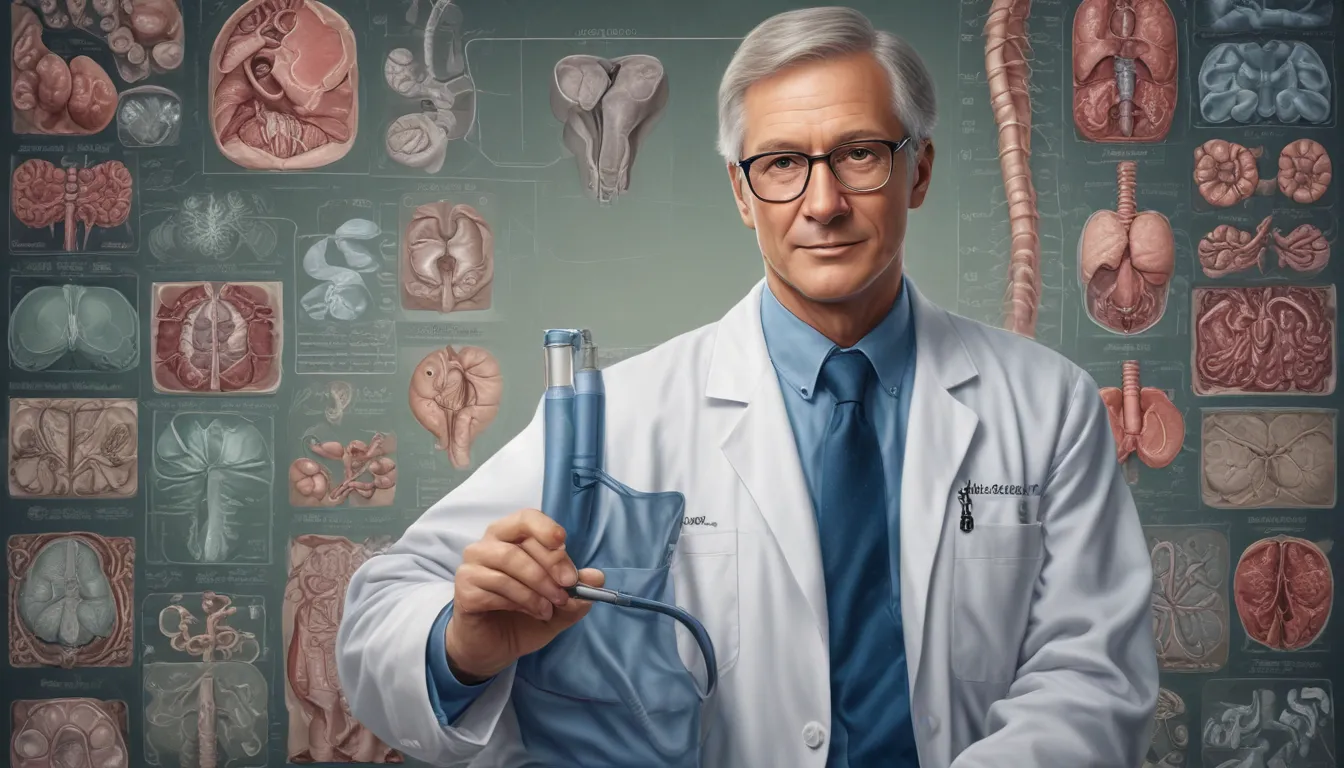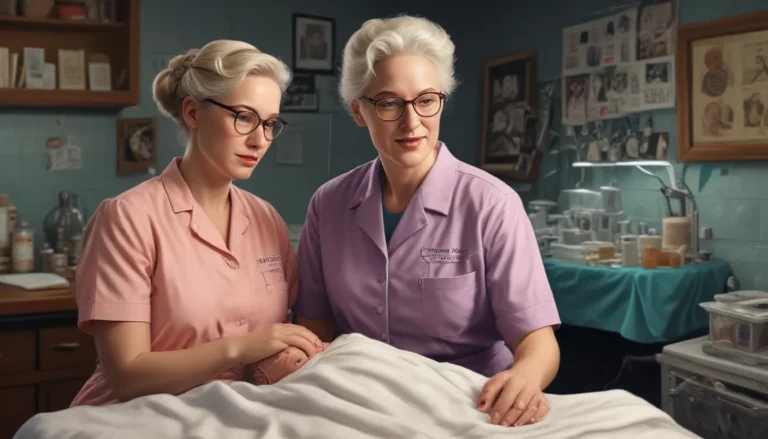The images in our articles may not match the content exactly. They are used to grab your attention, not to show the exact details in the text. The images complement the text but do not replace it.
Dr. Barry J. Marshall is a name synonymous with remarkable contributions to the field of medical research. His groundbreaking discoveries have revolutionized the understanding and treatment of various diseases, particularly peptic ulcers. In this article, we will delve deep into the life and achievements of Dr. Marshall, uncovering 18 intriguing facts that highlight his immense impact on the medical community.
Unveiling Dr. Marshall’s Revolutionary Work
Dr. Barry J. Marshall’s legacy in the field of gastroenterology stems from his revolutionary research on peptic ulcers. Challenging the conventional wisdom that stress and spicy foods were the culprits behind ulcers, Dr. Marshall proposed a bold new theory – bacteria. His discovery of the bacteria Helicobacter pylori as the cause of ulcers paved the way for a paradigm shift in the medical community’s understanding and treatment of this condition.
Dr. Marshall’s relentless pursuit of evidence-based medicine and his unwavering dedication to scientific inquiry have left an indelible mark on the field of gastroenterology. His advocacy for new treatment methods and his mentorship of future medical professionals have inspired generations of researchers and physicians to push the boundaries of medical knowledge.
Dr. Marshall’s Journey to the Nobel Prize
In 2005, Dr. Barry J. Marshall, alongside his research partner Dr. Robin Warren, was awarded the Nobel Prize in Physiology or Medicine for their groundbreaking discovery of the link between Helicobacter pylori and peptic ulcer disease. This prestigious accolade solidified Dr. Marshall’s significant contributions to the field of medicine and underscored the importance of his research in challenging established medical beliefs.
Self-Experimentation and Scientific Validation
One of the most iconic moments in Dr. Marshall’s career was his daring self-experimentation to prove the bacterial cause of ulcers. In a bold act, he ingested a culture of Helicobacter pylori, demonstrating that the bacteria could indeed cause gastritis and ulcers. This act of scientific validation not only solidified his findings but also showcased his unwavering commitment to advancing medical knowledge through personal sacrifice.
Transforming Peptic Ulcer Treatment
Prior to Dr. Marshall’s research, peptic ulcers were primarily treated with medications aimed at reducing stomach acid. However, his groundbreaking discovery revolutionized treatment options by introducing antibiotic therapies that could effectively target and eliminate Helicobacter pylori. This shift in treatment protocols has significantly improved patient outcomes and reduced the recurrence rates of ulcers.
A Legacy of Mentorship and Advocacy
Beyond his groundbreaking discoveries, Dr. Marshall’s influence extends to his role as a mentor and advocate for evidence-based medicine. His dedication to guiding and inspiring aspiring medical professionals has shaped the future of gastroenterology. Additionally, his advocacy for public health initiatives highlights his commitment to minimizing the burden of diseases on individuals and communities.
Continuing the Pursuit of Medical Innovation
Despite his significant achievements, Dr. Barry J. Marshall remains actively involved in medical research, collaborating with researchers and medical professionals globally. His ongoing efforts in areas such as antibiotic resistance, the human microbiome, and the role of bacteria in health conditions demonstrate his unwavering commitment to advancing medical knowledge and improving patient care.
Inspiring the Next Generation of Healthcare Leaders
Dr. Barry J. Marshall’s remarkable journey serves as an inspiration to aspiring healthcare professionals worldwide. His story epitomizes the power of perseverance, critical thinking, and belief in one’s ideas to create lasting change in the medical field. Through his pioneering research and dedication to evidence-based medicine, Dr. Marshall continues to shape the future of gastroenterology and inspire a new generation of medical professionals.
FAQs About Dr. Barry J. Marshall
-
Q: What is Dr. Barry J. Marshall’s most significant discovery?
A: Dr. Barry J. Marshall’s most significant discovery is the link between Helicobacter pylori bacteria and gastric ulcers, challenging conventional beliefs about ulcer causation. -
Q: How did Dr. Barry J. Marshall prove his discovery?
A: Dr. Marshall conducted a daring self-experimentation where he ingested Helicobacter pylori to demonstrate the bacteria’s role in causing gastritis and ulcers. -
Q: What impact did Dr. Barry J. Marshall’s discovery have on the medical community?
A: Dr. Marshall’s discovery revolutionized the understanding and treatment of peptic ulcers, leading to the development of antibiotic therapies that target Helicobacter pylori. -
Q: Has Dr. Barry J. Marshall received any awards or recognition for his work?
A: Yes, Dr. Barry J. Marshall was awarded the Nobel Prize in Physiology or Medicine in 2005 for his groundbreaking research on Helicobacter pylori and peptic ulcers. -
Q: What is Dr. Barry J. Marshall currently working on?
A: Dr. Barry J. Marshall continues to be actively involved in medical research, focusing on areas such as antibiotic resistance, the human microbiome, and the impact of bacteria on various health conditions.
In Conclusion
In conclusion, Dr. Barry J. Marshall’s contributions to the field of gastroenterology have been nothing short of extraordinary. His groundbreaking research on peptic ulcers and the bacterial cause behind them has reshaped the landscape of medical understanding and treatment. Through his dedication to evidence-based medicine, mentorship of future medical professionals, and ongoing pursuit of scientific knowledge, Dr. Marshall’s impact will continue to inspire and guide healthcare professionals for generations to come. The legacy of Dr. Barry J. Marshall stands as a testament to the transformative power of scientific inquiry and the importance of challenging established paradigms in the pursuit of medical innovation.






